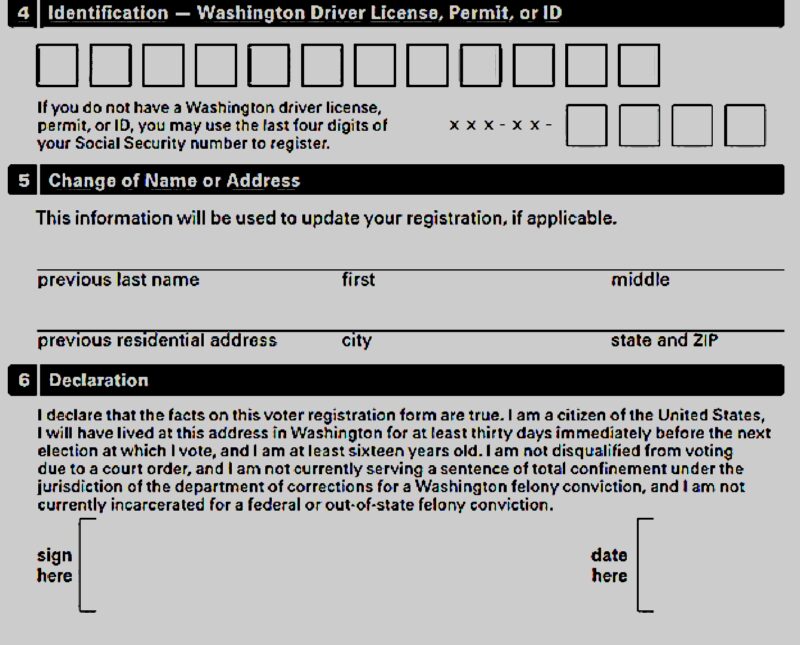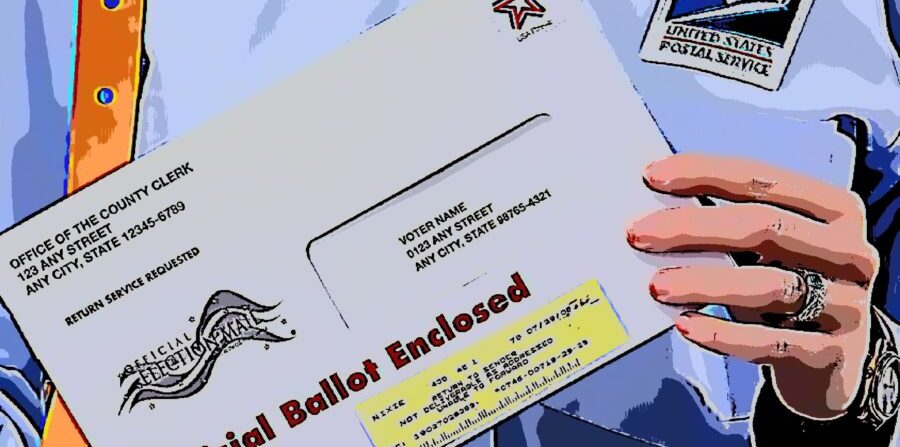In November of 2023, the Washington State Alliance for Retired Americans filed an AMENDED COMPLAINT FOR DECLARATORY AND INJUNCTIVE RELIEF in the UNITED STATES DISTRICT COURT WESTERN DISTRICT OF WASHINGTON against Washington Secretary of State and 2 county auditors in King and Thurston Counties.
The complaint states that Washington state’s durational residency requirement for voting is in violation of federal law. Specifically, “Section 202 of the VRA is explicit: “No citizen of the United States who is otherwise qualified to vote in any election for President and Vice President shall be denied the right to vote . . . in such election because of the failure of such citizen to comply with any durational residency requirement of such State or political subdivision.” 52 U.S.C. § 10502(c).”
The Complaint
State Law
Voters can register to vote all the way up to 8pm on election day. If a voter is registered already in Washington, they can simply update their registration address. If a voter fails to update their address, they are permitted to vote from their old address. (See RCW 29A.08.140)
The lawsuit seems to be focused on the small percentage of people that may move to Washington within 30 days of an election. According to the oath of application, they can’t register because they haven’t lived there for 30 days.
The Oath
RCW 29A.08.230 Oath of applicant.
For all voter registrations, the registrant shall sign the following oath: “I declare that the facts on this voter registration form are true. I am a citizen of the United States, I will have lived at this address in Washington for at least thirty days immediately before the next election at which I vote, and I am at least sixteen years old. I am not disqualified from voting due to a court order, and I am not currently serving a sentence of total confinement under the jurisdiction of the department of corrections for a Washington felony conviction, and I am not currently incarcerated for a federal or out-of-state felony conviction.”
What it Boils Down to:
The argument claims, “While the VRA allows an imposition of a 30-day pre-election registration cutoff, even in presidential elections, 52 U.S.C. § 10502(d), and allows voters who do “not satisfy the registration requirements of” a new state of residence to vote for president and vice president in their prior state of residence, if they are able to do so in person or via absentee ballot, id. § 10502(e)(emphasis added), those provisions do not apply to the Durational Residency Requirement, because Washington does not impose any registration cutoff. Rather, under the Durational Residency Requirement, voters who could otherwise register and vote within 30 days of a presidential election are prohibited from doing so solely because they have not lived in the state long enough before the election.”
In other words, if we had a 30-day registration requirement, it wouldn’t be an issue. But because we offer same day registration, it’s an issue.
Applies Only to the Presidential Race
Let me point out that the federal law they refer to only applies to voting for office of the President and Vice President.
Nevada, according to the document, has a similar situation, but they allow voters who fall into this category to vote for the office of President and Vice President on a special ballot, or a “federal ballot.” This keeps them in compliance with the law but still allows them to require a durational residency requirement for all state or local races.
Washington could have done something similar. If we can do special ballots for people who are underage during a primary election but will be 18 by the general, we can do a special federal ballot for people who move from another state to Washington within 30 days of an election, which contains only the presidential race.
The March 15, 2024 Order
On March 15 2024, an ORDER GRANTING JOINT MOTION FOR ENTRY OF CONSENT JUDGMENT AND DECREE was filed, which states:
To resolve the litigation, Defendants have agreed to entry of the consent decree, under which “registrants will no longer be required to attest, under penalty of perjury, that they have resided at their Washington address for at least 30 days immediately before the next election….”
“Defendants have agreed to make these changes beginning with the November 2024 election so long as the consent decree is entered before August 1, 2024.”
Perspective
An identical case was filed in North Carolina. In their case, the legislature intervened and challenged their accusations. The case was moved to a higher court and eventually dismissed due to a lack of standing.
In Washington, the legislature wasn’t notified of the complaint and the consent decree was submitted to the court right after the legislative session ended.
Why Haven’t We Heard About This?
At the time of this article, there is nothing on the WA SOS website news section about this case or it’s outcome. However, there are articles about the Dungeons and Dragons games donated to the library and a link to donate to Hawaii’s wild fires. News | WA Secretary of State
The only reason we are aware of this is because we found out through a PRR for the recent Logically AI Reports. We like to keep an eye on which articles and social media posts of ours they are reporting on. This was in one of the reports so we looked into it.
It also appears that they have already removed the 30 day residency part of the voter registration form, despite the RCW including that in the oath. RCW 29A.08.230 See below.
New Form
(Scroll down to the bottom of the first page.)
Old Form
(Scroll down to the bottom of the first page and see highlighted areas.)
Questions
Why didn’t the SOS implement a federal only ballot? Why did he completely remove the 30 day residency requirement?
States impose a registration deadline to allow for the voter’s eligibility to be confirmed. How will anyone have enough time to confirm eligibility if there is no residency requirement or registration deadline for anyone wishing to vote in a Washington election? What would stop anyone from coming in to Washington on election day and registering and voting in our election?
Damage
This has left a huge hole in election security and is even more damaging to the level of public trust in our elections. The decision to remove the 30 day residency requirement against state law without telling the voters is a step in the wrong direction if they care about transparency and voter confidence.




